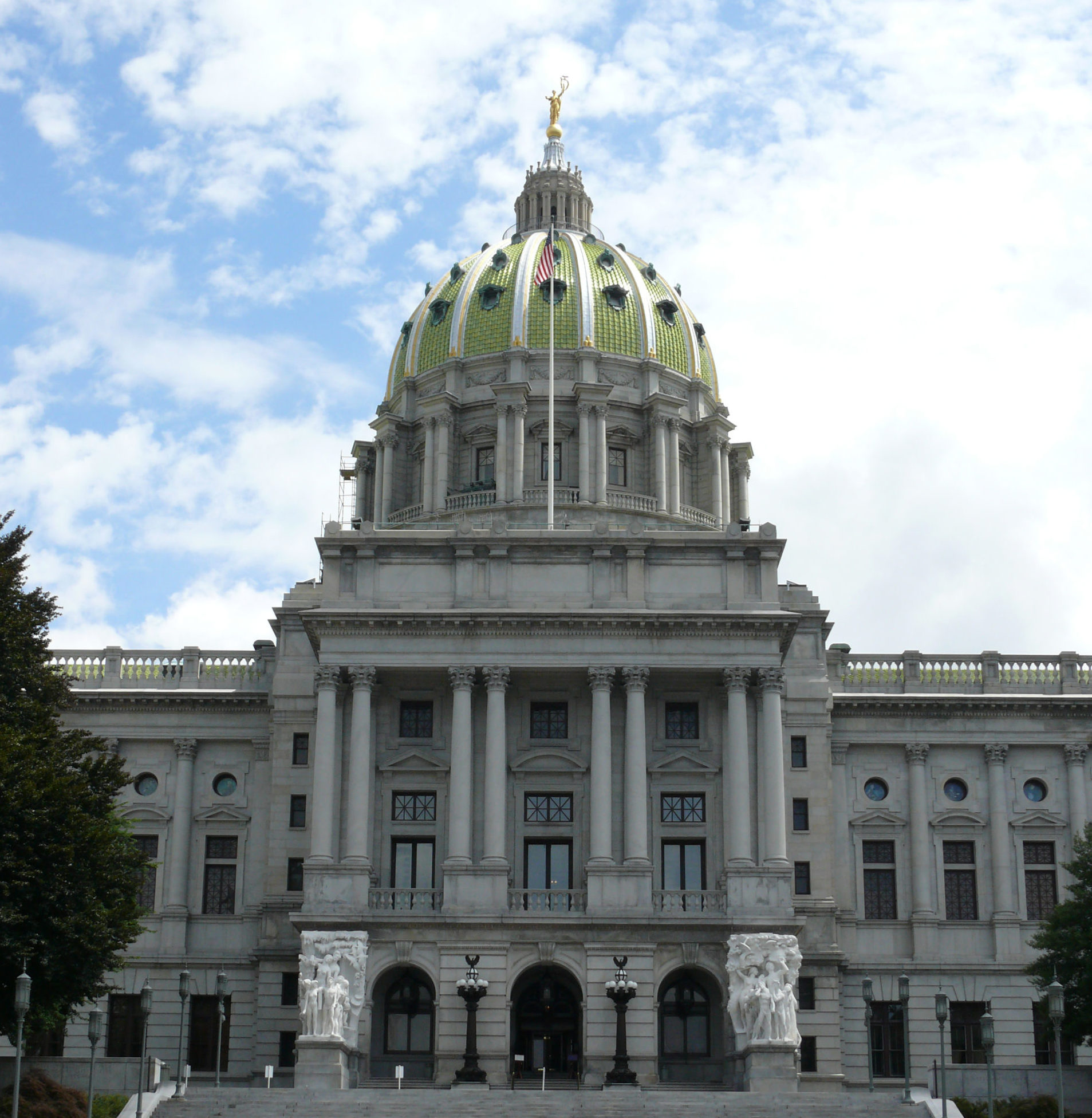The Pennsylvania House Republican Policy Committee held a hearing Wednesday where a broad array of business groups and owners offered their thoughts on Gov. Tom Wolf’s $38 billion budget. The general consensus: It’s not off to a good start.
The testimony covered a range of Wolf’s proposals: a $15 minimum wage, a natural gas tax, Wolf’s desire to join the Regional Greenhouse Gas Initiative (RGGI), and an income tax increase. Sam Denisco of the Pennsylvania Chamber of Business and Industry led off the testimony with an oft-repeated theme, “Competitiveness is a huge issue.”
Carl Marrara of the Pennsylvania Manufacturing Association (PMA) noted 80 percent of businesses pay their taxes through the Personal Income Tax (PIT). A raise in the PIT, coupled with the rest of the governor’s proposal, is not a welcome move for his association, Marrara said.
Guy Berkebile, owner of Guy Chemical and PMA member, called Wolf’s budget “the antithesis of the Tax Cuts and Jobs Act” — legislation passed by the GOP-controlled Congress and signed into law by President Trump in 2017. Berkebile described how his company benefited from those tax cuts. But he says he now fears the governor’s budget would erase those gains. He also added he owns a facility in Vermont he’s looking to relocate, and Pennsylvania is not currently high on his list of potential states.
Raising the minimum wage has been a priority of Wolf’s since he was elected in 2014. Jim Fris, CEO of PJW Restaurant Group, was critical of plans to move the minimum tipped wage, currently at $2.83, to the $15 minimum wage.
Fris said the proposal “would send wages backward,” adding servers “don’t want to make just $15 an hour.” According to Fris, average employees in his company’s restaurants make between $25-28 per hour. He explained the $2.83 is a minimum that restaurants pay employees and doesn’t include tips. Should an employee’s shift not result in the current minimum wage of $7.25 per hour, the restaurant makes up the difference.
Fris also added stadiums are preparing to reopen in Pennsylvania, but there are no apparent plans to ease restrictions on his restaurants.
There was unanimous agreement among the participants, both virtual and in-person, that the state needs to help local businesses, not burden them with higher taxes or new regulations. Whether Wolf’s emergency declaration shut their businesses down entirely or severely altered them, they all feel the time is now to fully reopen the economy.
Marrara reminded the committee Wolf pledged to reopen the economy when a vaccine was available. He then noted the governor’s budget address was “3,267 words and not one mention of vaccines or vaccinations.”
While the hearing was mostly focused on how Wolf’s budget would affect businesses moving forward, one story of resiliency was shared for a small business. Baily Coach, which saw a 95 percent drop in its business of transporting passengers on its fleet of motor coaches, sedans, and vans saw an opportunity in the pandemic. Owner John Baily took a disinfecting sprayer normally used on his buses and started offering a disinfecting service. He was able to bring back some of his drivers and use the money to make good on a commitment to pay every full-time driver’s healthcare benefits during the pandemic.
Republican Chairman Martin Causer (R-Cameron, McKean, and Potter) promised the small business owners who spoke out that their stories will be shared with the rest of the House Republican Caucus who could not attend the hearing.

